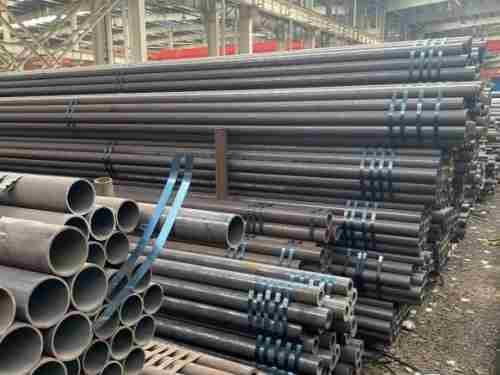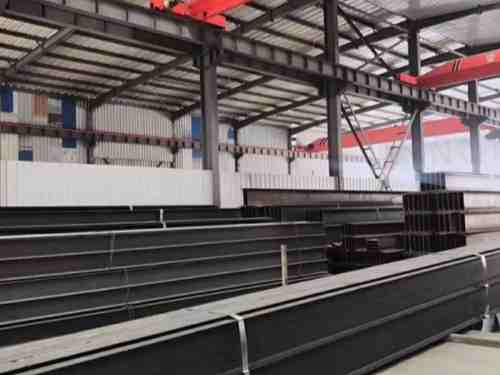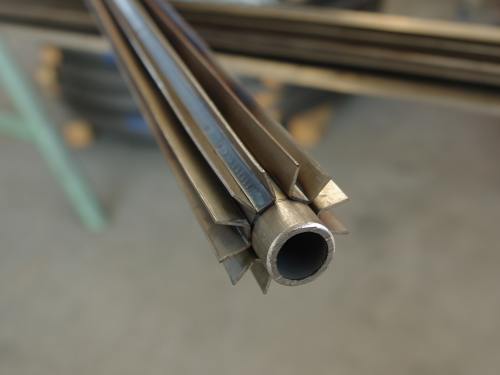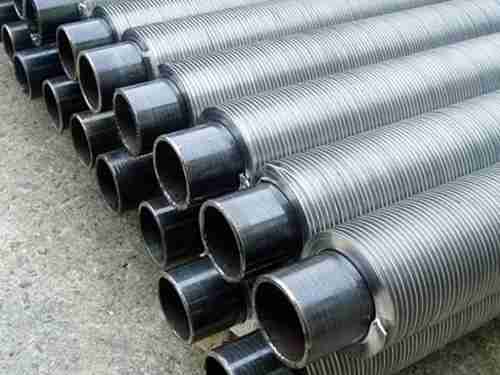Titanium CP Grade 2
Industries and Applications
Grade 2 titanium is less dense and ideal for heavier applications. Medical and aerospace are two key industries for titanium alloys. Grade 2 titanium’s strength and corrosion resistance also make it ideal for applications in the marine, chemical processing and desalination industries. Typical applications for Grade 2 titanium include oil and gas components, reaction and pressure vessels, pipes or piping systems, heat exchangers, linings, flue gas desulfurization systems and many other industrial components. Continuous operating temperatures up to 800°F and occasional intermittent operating temperatures up to 1000°F.
preservative
Corrosion Resistance of C.P. Titanium grades result from the formation of a firmly adherent, stable protective oxide film in the presence of oxygen. This film enables commercially pure titanium grades to withstand most oxidizing, neutral and inhibited reducing, and mildly reducing environments. Level 2 has excellent resistance to seawater and marine atmospheric corrosion. The corrosion resistance of the four C.P.s was similar. grade, but the mechanical properties vary with changes in oxygen and iron content. Grade 2 titanium resists attack by moist chlorides and metallic chlorides, chlorite and hypochlorite solutions, nitric and chromic acids, organic acids, and many gaseous industrial applications.
Manufacturing and heat treatment
Grade 2 titanium has good ductility and can be cold formed. To prevent cold forming problems, materials less than 0.070 inches thick should use a minimum bend radius of 2T, while materials thicker than 0.070 inches should use 2.5T. The material is also easy to machine, heat treat and weld. Hot working should be performed between 400°F and 600°F. Stress relief should be achieved by heating to a temperature between 900°F and 1100°F, followed by forced ventilation or slow cooling. Annealing temperatures range from 1200°F to 1400°F for 6 minutes to 2 hours followed by air cooling.
Welding of grade 2 titanium can be performed using a variety of methods, such as MIG and TIG. Inert gas shielding is essential to prevent the weld area from absorbing oxygen and embrittlement. A mixture of argon and helium is usually preferred, but should be tested before proceeding with the welding procedure. No preheating or post-heat treatment is required.
Chemical Composition
| Weight % |
Ti |
C |
Fe |
N |
O |
H |
| Titanium CP Grade 2 |
Bal. |
0.08 |
0.30 |
0.05 |
0.020 |
0.015 |
Mechanical Property
| Material |
Tensile Strength min |
Yield Strength min. |
Elongation |
| KSI |
Mpa |
KSI |
KSI |
MPa |
A (%) |
| Titanium CP Grade 2 |
50 |
345 |
40-65 |
276-448 |
20 |
Availability
Titanium Grade 2 is available in Bar, Billet, Extrusion, Plate, Sheet, Strip, Wire, Pipe, Tube, Rings and Forgings.
Forgings:
Ring size capability
OD ≤ 1300mm
Height ≤ 250mm
Disc size capability
OD ≤ 1100mm
Height ≤ 40mm
Most of the applications of this grade are in the chemical industries. The most common uses are reactor autoclaves, piping and fittings, valves, heat exchangers and condensers.
ASTM B265 Gr2 - Sheet, plate
ASTM B338 Gr2 - Heat exchange tube
ASTM B348 Gr2 - Bar
ASTM B381 Gr2 - Forgings
ASTM F467 Gr2 - Nuts
ASTM F468 Gr2 - Bolts

 English
English Español
Español











